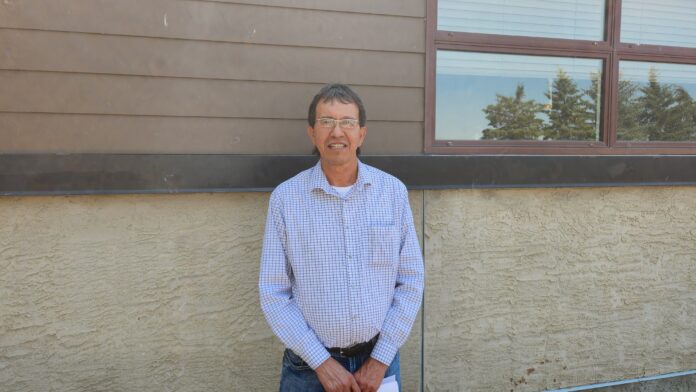Wednesday marked a day of celebration at the Lethbridge Wellness Shelter and Stabilization Unit. A ceremony was held to mark an expansion project at the facility.
The provincial government has teamed with the Lethbridge Housing Authority and shelter operator the Blood Tribe Department of Health (BTDH) to expand capacity.
Once finished, the capacity at the shelter will go from about 120 spaces to over 200. The initiative will include a dedicated room for on-site recovery-oriented services.
By way of the Affordable Housing Partnership Program, the Alberta government invested over $4 million to help local partners in addressing homelessness in Lethbridge. The City of Lethbridge has also donated the land for the expansion, which is valued at $1.4 million.
The BTDH took over operation of the shelter in early 2023. Its CEO, Derrick Fox, says this expansion will ensure more people are supported.
“It is our duty to continue to help our members that are struggling, that are vulnerable and again, when we say our members, that’s all walks of life here in Lethbridge,” Fox states.
In February 2024, the provincial government signed a memorandum of understanding for the BTDH to continue operating the emergency shelter.
Fox says although more space may eventually be needed, this expansion will go a long way in providing culturally sensitive support.
“Sometimes the circumstances we face are not necessarily our choices, based on historical trauma we’ve gone through, based on racism. All those factors at times have unfortunately influenced where people are today,” he remarks.
Fox added the BTDH wants to offer help while honouring traditional Blackfoot values, like kindness and everyone in need is welcome to visit the shelter.
“Everybody deserves that opportunity as far as being supported and at times, it’s unfortunate as far as some of what our vulnerable population face, but we want to reinforce to them that we care, and they are and will and can be further contributing to society in a very positive way,” he remarks.
Funding for the project is eligible for federal cost-matching through the National Housing Strategy bilateral agreement.
READ MORE: Furthering reconciliation through emergency shelter







